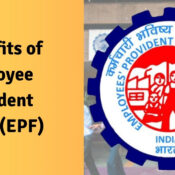Can NRIs Buy Property in India Without Visiting?
Can NRI buy Property in India?
Yes, an NRI can purchase real estate in India. The Reserve Bank of India (RBI) administers the Foreign Exchange Management Act (FEMA), which governs the purchase and transfer of immovable property in India by non-resident Indians (NRIs). According to FEMA, an NRI is an Indian citizen who resides outside of India. An OCI (overseas citizen of India) is a Non-Indian citizen who or whose parents or ancestors were born in India. NRIs and OCIs are regarded identically with regard to real estate investments. Henceforth, we will refer to them as non-resident Indians.
Should an NRI buy Property in India?
All NRIs are aware that India has one of the world’s fastest-growing economies. The Real Estate Sector contributes approximately 10% to the country’s Gross Domestic Product. With the Indian government planning to invest additional billions of dollars in infrastructure development, the Indian Real Estate Sector continues to expand. Real estate investment is one of the most secure investment options for an NRI in India.
However, NRI investments in India are undergoing a change. Currently, NRIs favour investing in financial assets over tangible assets. Financial Assets (mutual funds, portfolio management services, fixed deposits, etc.) are preferable to Physical Assets (land, residential property, commercial property) for the following reasons:
1. Physical assets such as land, residential or commercial real estate are typically considered illiquid. In contrast, financial assets such as mutual funds, portfolio management services, and fixed deposits can be sold with a single click. An NRI must also locate a buyer, agree to a specific price, and then receive the sale proceeds in order to sell land. In contrast, when investing in financial assets such as mutual funds or fixed deposits, an NRI can receive their entire investment returned in one week. In addition, there is a substantial amount of undocumented money involved in real estate transactions, which can be difficult for an NRI to manage.
2. Returns: It is common knowledge that the long-term returns of financial instruments such as mutual funds and portfolio management services will exceed those of tangible assets such as land, residential property, commercial property, etc. India is not an exception in this respect. In India, financial asset returns have consistently outpaced physical asset returns over the past three decades.
3. Administration of Assets: Physical assets require resources for management, maintenance, and security in order to be effectively maintained. In contrast, modern financial assets are professionally managed and require neither your time nor resources. Physical assets require both time and money to manage, whereas financial assets do not.
4. Correlation With Economic Development: As the economy expands, the returns on physical assets diminish. It occurs because as the economy grows, so does the infrastructure, and as infrastructure grows, people tend to reside in more remote areas. Locations that are far from the main centre are considered remote. There is a significant increase in the supply of real estate, which reduces the returns on real estate investments as people move to more remote areas. However, financial asset returns are consistent with economic development. The returns on financial assets increase in tandem with economic expansion. The greater the economic expansion, the greater the returns on financial assets.
5. The next generation of NRIs has no plans to relocate to India or frequently visit the country. Furthermore, since NRIs have no intention of using the property, it makes little sense for them to own real estate. In addition, travelling to India to administer the assets may be difficult for them.
How Can an NRI Buy & Sell Properties In India?
A non-resident Indian may purchase residential and commercial property in India without restriction. NRIs can pay through standard banking channels by transferring funds from a foreign bank account, or they can use the funds in their NRE/NRO accounts. In India, NRIs cannot purchase real estate with traveler’s checks or foreign currency. Due to the depreciating rupee, a large number of non-resident Indians are investing in Indian real estate markets. A depreciating rupee would allow NRIs to generate anomalous returns due to fluctuations in the exchange rate.
It is advisable for NRIs to purchase real estate in India using remittances from abroad or an NRE account. This would allow a non-resident Indian to readily repatriate the proceeds from the sale of a property outside India after paying the applicable taxes. However, the repatriation of funds from the sale of residential dwelling properties is limited to a maximum of two properties. Beyond that amount, repatriation must adhere to RBI’s 1 million dollar repatriation scheme.
Documents Required for NRI Property Purchases in India
A non-resident Indian can purchase property in India with the following documents:
● Passport or OCI Card
● Pan Card
● Power Of Attorney (In case the NRI is unable to come to India to complete the purchase)
● Utility Bills (For proof of current residence)
● Passport Size Photo
Can an NRI Buy Property In India Without Coming To India?
Yes, a Non-Resident Indian (NRI) with a Power of Attorney (POA) can purchase real estate in India without visiting India. An NRI may grant a POA to a friend or relative in order to conclude a transaction in India. A non-resident alien can construct a personalised POA to grant specific rights to the representative purchasing property on their behalf. A POA would allow an NRI to purchase property in India without travelling there.





